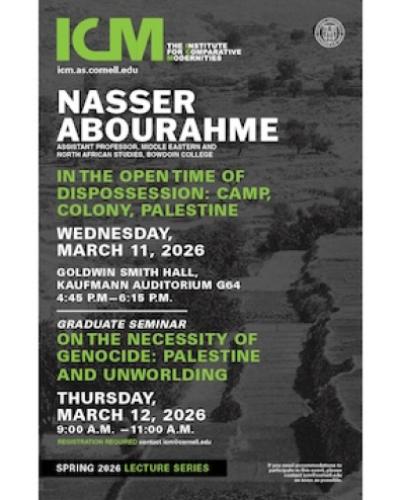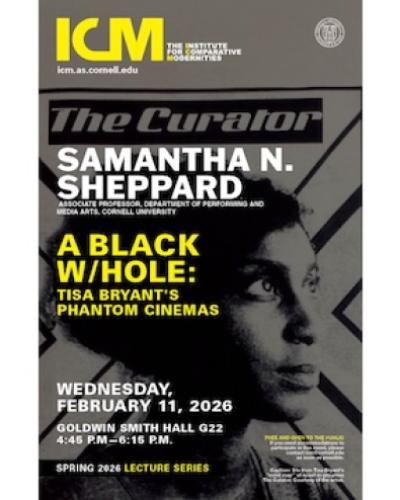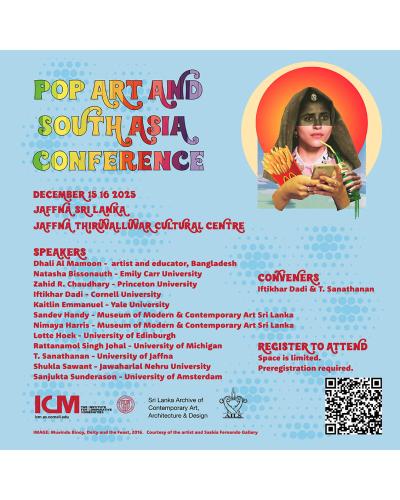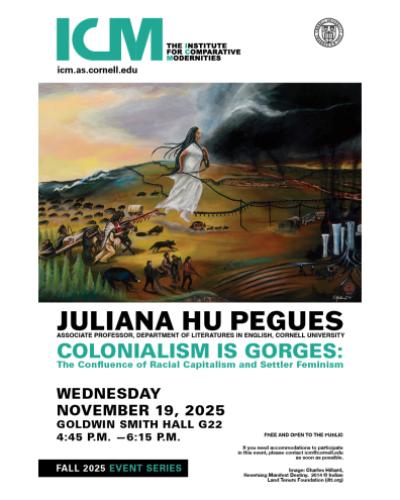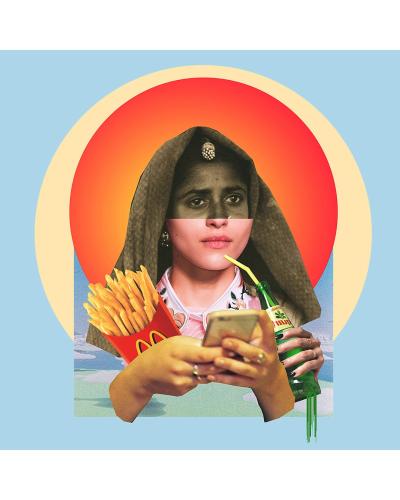Pop Art and South Asia
Conference
December 15-16, 2025
Jaffna Thiruvalluvar Cultural Center
Jaffna, Sri Lanka
REGISTER TO ATTEND
Space is limited. Preregistration required.
This conference focuses on South Asian art’s engagement with popular culture from the mid-twentieth century through the present. The rapid development of capitalism, urbanism, media, technology, and mass politics since the late nineteenth century has engendered multiple resonances in the complex societies of South Asia, providing openings for artists to engage with popular social and cultural developments. Here, Pop art is not confined to what is commonly understood in a Western context as engaging primarily with late capitalist consumer culture and media imagery. Rather, Pop artistic practices unfold in the context of uneven development, multiple temporalities, layered aesthetic regimes, within societies that are in rapid and turbulent transition.
Contemporaneous with the global efflorescence of Pop art, South Asian artists, whether practicing in the region or in the diaspora, have been deeply engaged with questions of the “popular.” These developments span the modernist era into the present. While Pop art in South Asia and its diaspora does not constitute a single movement or school, many artists have worked in a “pop” modality, either as individuals or in conversation with fellow travelers.
The exhibition Pop South Asia: Artistic Explorations in the Popular (Sharjah Art Foundation 2022 & Kiran Nadar Museum of Art 2023), curated by Iftikhar Dadi and Roobina Karode, provided a significant focus on the subject. It included the work of artists from six South Asian nations and their diasporas. It encompassed practices from the early twentieth century into the 1960s and the present, tracing multigeneration relays of shared concerns. Pop South Asia was recognized by leading art publications as among the notable global exhibitions in both 2022 and 2023.
The Pop Art and South Asia conference extends the inquiry initiated by the Pop South Asia exhibition. The invited scholars will address methodologies for understanding the relation between art and the popular and analyze developments across the South Asia region and its diasporas.
SCHEDULE
DEC 15
9:30 am Registration
10:00 am
Opening Remarks
T. Sanathanan and Iftikhar Dadi
Pop Art in South Asia: Methodologies and Approaches
Iftikhar Dadi
Panel 1: 10:45 am – 1:00 pm
Between Pop Art and Political Montage: Manoeuvres in Dissent
Sanjukta Sunderason
Shomoy: Context and Journey of an Artists’ Group
Dhali Al Mamoon
The Popular and the Political: SAHMAT in the Public Sphere
Rattanamol Singh Johal
Panel 2: 2:00-3:30 pm
Ambedkar Age Digital Bookmobile and State-Sponsored Statuary in Western India
Shukla Sawant
Political Pop After the 1990s in Sri Lanka: Meaning and Dissonance
T. Sanathanan
DEC 16
Panel 3: 10:00 am – 12:15 pm
On the Possibilities of Pop: Testing Frameworks from Sri Lanka
Sandev Handy & Nimaya Harris
Pop Art in Pakistan
Iftikhar Dadi
Popular Cinema and Contemporary Art in Bangladesh
Lotte Hoek
Panel 4: 1.15-3:30 pm
Black and Brown Seams Across Diasporas
Natasha Bissonauth
The Political and the Popular in the Era of M.I.A.
Kaitlin Emmanuel
South Asia Unbound
Zahid Chaudhary
CONVENERS
Iftikhar Dadi – Cornell University, USA
Thamotharampillai Sanathanan – University of Jaffna, Sri Lanka
SPEAKERS
Dhali Al Mamoon is an artist and educator whose work in diverse media and materials engages with present reality, history, and the persistence of colonialism as historical trauma. He divides his time between Chattogram and Dhaka in Bangladesh
Natasha Bissonauth is Assistant Professor of Art History at Emily Carr University, Vancouver. Her research centers on queer aesthetics and archival logics across South Asia and Indian Ocean diasporas.
Zahid R. Chaudhary is Associate Professor in the Department of English at Princeton University. He specializes in postcolonial studies, visual culture, and critical theory.
Iftikhar Dadi is the John H. Burris Professor in History of Art at Cornell University. He researches art from a transnational perspective, with an emphasis on methodology and intellectual history, and a focus on South and West Asia.
Kaitlin Emmanuel is the Dr. Malathy Singh Postdoctoral Associate and Lecturer in History of Art at Yale University. Her research examines contemporary artworks belonging to a broadly conceived “Tamil diaspora” that emerged as a consequence of Sri Lanka’s civil war.
Sandev Handy is Senior Curator at the Museum of Modern and Contemporary Art Sri Lanka (MMCA). He is part of the Packet, an artist collective, and a member of Studio for Memory Politics, an independent research studio based in Zurich, Makassar, Karachi, and Colombo.
Nimaya Harris is Project Curator at the Museum of Modern and Contemporary Art Sri Lanka (MMCA). She is leading a project to document the life and architectural practice of Minnette De Silva (1918-1998). She is concurrently a Visiting Lecturer at the English Faculty of the University of Kelaniya, Colombo.
Lotte Hoek is Professor of Cultural Anthropology at the University of Edinburgh. Her projects have engaged questions of censorship and transgression, popular genres, cine-activism, and the moving image in contemporary art practice in Bangladesh.
Rattanamol Singh Johal is Assistant Professor in History of Art at the University of Michigan, Ann Arbor. His research focuses on experimental, lens-based, and time-based art that emerged in India during the final decades of the twentieth century.
T. Sanathanan is a visual artist and Professor of Art History, Department of Fine Arts, University of Jaffna, Sri Lanka. He is one of the co-founders of Sri Lankan Archive for Contemporary Art, Architecture and Design in Jaffna and founder of Kolam craft initiative.
Shukla Sawant is a Professor of Visual Studies at Jawaharlal Nehru University's School of Arts & Aesthetics in India. Her scholarly work explores art in colonial India, print cultures, photography, and the significant role of artists' collectives.
Sanjukta Sunderason is Associate Professor at the Department of Arts and Culture at the University of Amsterdam. She is an art historian working at interfaces of visual art, political thought, and decolonization in South Asia and the Global South.
SPONSORS
Institute for Comparative Modernities, Cornell University (ICM)
American Institute for Lankan Studies (AILS)
Sri Lanka Archive of Contemporary Art, Architecture & Design (SLA)
Image: Muvindu Binoy, Deity and the Feast, 2016.
Courtesy of the artist and Saskia Fernando Gallery.


